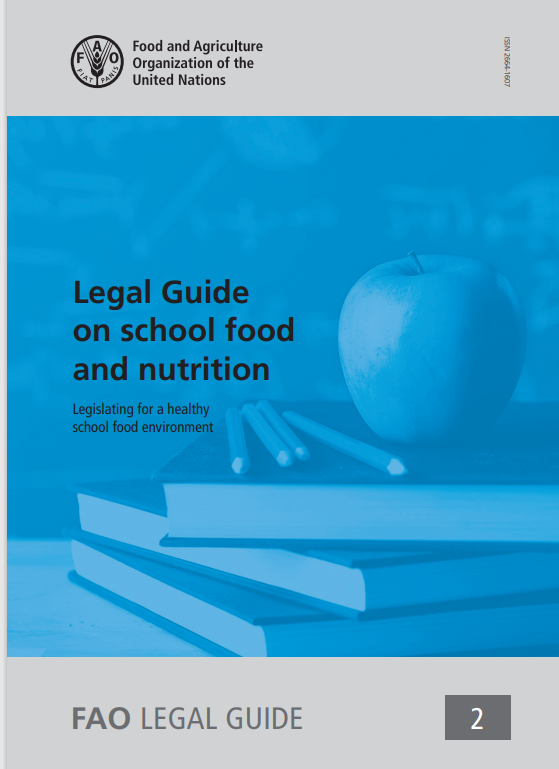A solid international consensus has emerged on the importance of nutrition for children’s development and well-being. At the Second International Conference on Nutrition (ICN2), the Member States of the Food and Agriculture Organization of the United Nations (FAO) and the World Health Organization (WHO) committed to developing policies, programmes and initiatives to ensure healthy diets throughout the children’s life cycle, emphasizing the potential of schools as platforms for integrated action.
This Guide promotes a holistic and human rights-based approach to school food and nutrition, in which legislation is an indispensable tool to ensure the sustainability of public policy goals set by a country. In light of international law and standards, it provides practical information and guidance to develop or strengthen national legislation to improve food security and nutrition in schools as well as community development.
The Guide presents a range of regulatory options and legislative examples of state practice that may contribute to building sound and coherent legal frameworks for school food and nutrition. It is a useful resource for law practitioners, policymakers, parliamentarians, and all actors who are involved in the design, implementation, or monitoring of school programmes and policies and most particularly, for those interested in taking legislative action (law-making or law reform).







